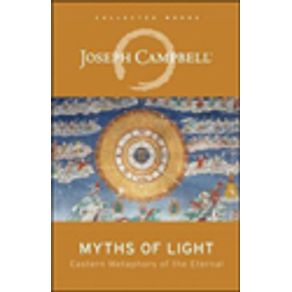In this volume of previously unpublished lectures and articles, the late world folklorist and comparative mythologist Campbell extols the myths of Asian religions, though, as always, the whole of humanity is the author's intended audience. With jaunty, American optimism, Campbell delves into the stories and imagery, as he defines them, of Buddhism and Yoga and other "Oriental" systems of belief, to find a well of deep humanistic wisdom in each one, sharply in contrast to the anti-spiritual habits of the West. "You may have practical ethics and that kind of thing, but there is no spirituality in any aspect of our contemporary Western civilization," Campbell writes, suggesting that Western society "is disintegrating as a result" of the loss of religious myth. Campbell molds his stories into Jungian vessels of mystical awe, finding recurring archetypes and story lines embedded in large swaths of the Asian continent; sometimes a sort of fetishizing awe towards the object of his study creeps in: "When one goes to the Orient, of course, one may be physically shocked by the squalor and misery of the people and the life they're living there. Yet this coordinating principle comes shining through all the poverty in a strangely fascinating way, shining with the radiance of this mythic world." Campbell excels in telling the stories themselves-which feature brahmins and yogis, gods and monsters, as they disguise themselves as charioteers, eat themselves up and spy on mortals-and in his glancing descriptions of traditions foreign to us: Japanese "play language," an exceedingly polite mode of speech, for instance, or Jainism's insistence on quenching "all desire for life." His persistent, unifying interpretations cans sometimes deflate the power of these traditions, but this is nevertheless a solid primer.


